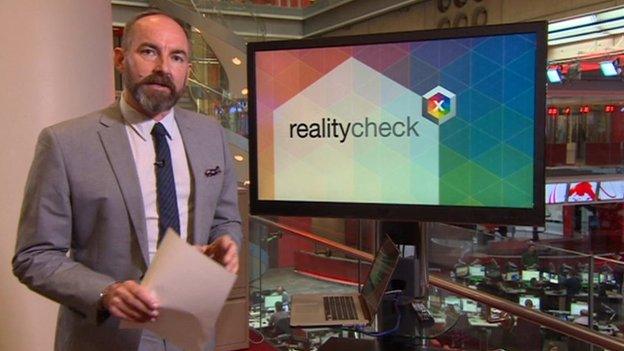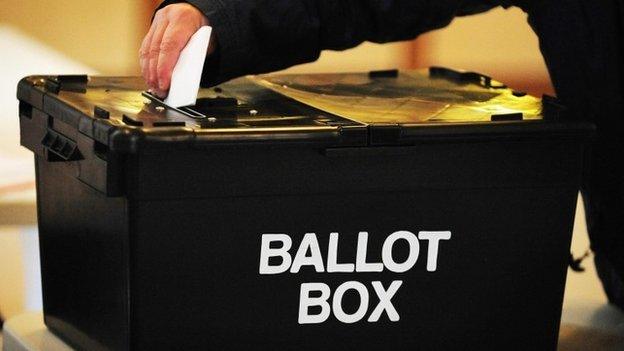Getting behind the political soundbites
- Published
- comments

I've been looking into politicians' claims ahead of the election
It's the end of my first week working for BBC Reality Check.
I've popped up all over the BBC discussing numbers and statistics and how politicians use them and I've learned a lot too.
Did you know, for example, that for all the talk about zero hours contracts, there's not really a proper definition of what a zero hours contract really is?
Or, how about the fact that apparently good economic news can be bad news at the same time?
Good news - more low qualified workers are finding jobs and getting off unemployment benefit. But since these jobs do not pay much the country's average wage starts to drop and that looks like bad news.
In that example you can see how politicians from either side would seize on one fact, and ignore the other, to support their views.
Counter claim
And that happens a lot, completely opposing views, backed up by statistics, which are both technically correct.
Take a key issue like government cash for councils in the north of England. Is it being slashed, or is it amongst the highest in the country?
I've talked to a couple of BBC radio stations in the north of England this week who have had Conservative politicians tell them their councils get plenty of funding from the government.
And yet at the same time Labour candidates are telling them the exact opposite, that funding has been slashed.
Here's the thing, both are technically right.
If you look at the amount the government has given councils in the North East (per person), then the region has consistently been top of the heap, if we put London to one side.
But, you get a different picture when you zoom in and look at what is happening on a council-by-council basis.

Both sides can back up their arguments with numbers, and both technically be right.
In fact, despite what the regional numbers show, we know councils in deprived areas have seen bigger drops in funding than those in affluent areas.
It's all a question of the services councils have to provide, their core spending.
So, northern councils know they can appear to do well in terms of the cash they get, but their argument is they have higher demand and more people rely on them.
In children's social care, for example, Newcastle City Council in Tyne and Wear has twice the level of funding as Wokingham Council in Berkshire. But, Newcastle has four times the number of children in care.
Newcastle receives four times what Wokingham gets for concessionary travel fares, cash to pay for pensioners bus passes.
But because pensioners in the North East are less likely to own a car, and use public transport more its costs are nine times greater.
So that explains how both sides can back up their arguments with numbers, and both technically be right.
But a more detailed Reality Check does go further to reveal why the experience of voters on the ground may support the reality of one set of numbers over the other.